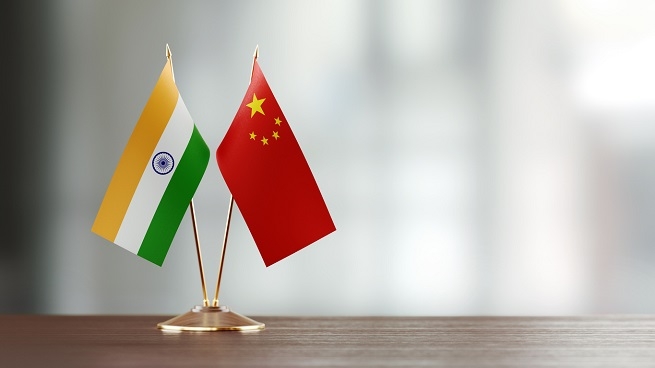acting east
| Date :09-Jul-2020 |

EVEN as India grapples with the current row with China, the world is appreciating New Delhi’s broader initiatives to establish better connect with nations. India’s ‘Act East Policy’ (AEP) aimed at consolidating not just the economic but also cultural bonding with nations of South-East Asia and integrating strongly security-related matters in the Indo-Pacific region also has won praise by think-tank European Foundation for South Asian Studies (EFSAS).
A recent study by EFSAS has described the policy as strategically more assertive than India’s earlier ‘Look East’ policy launched by the then Prime Minister Mr. P.V. Narasimha Rao more than a quarter of a century ago. The commentary underlines the success of various foreign policy initiatives by Prime Minister Mr. Narendra Modi after he took over in 2014. No matter what Beijing may say about itself, it is obvious that China is facing an increasing isolation internationally, thanks to its expansionism in all spheres. India’s ‘Act East Policy’ provides a healthy contrast to China’s aggressiveness whose metaphor is hard to be deciphered. While India has built better bonds with most nations in South-Asia and Indo-Pacific, thanks to its accommodation of mutual needs, China has hurt the sense of sovereignty of many countries, in the process creating a general antagonism towards Beijing’s approach.
The core values of India’s ‘Act East Policy’ are culture, commerce, and creativity. In addition, India is also engaged proactively to create strategic partnerships with South Asian actors giving strength to mutual security-related considerations. The EFSAS has appreciated the strength in India Act East Policy because of New Delhi’s successful effort of ‘coupling’ geographical sphere of the Indian Ocean to that of the Pacific Ocean region. The study states that despite partially differing security interests, India has been able to build better and more mature bonds with countries like Vietnam, Indonesia, and Malaysia. The document also refers to the various joint Naval exercises India carried out with other nations, and notes that such cooperation goes a long way in larger interest of all players. One of the most critical components of India’s foreign policy is the unstated principle of non-reciprocal assistance to countries that are in need.
Besides the altruism in this thinking, India has also derived specific benefits, too, from the approach -- by way of stronger commercial and cultural bonding with various countries in the region. Way back in the 1990s when Prime Minister Mr. Narasimha Rao launched the ‘Look East Policy’, many had tended to treat the initiative as mere poeticism. When Prime Minister Mr. Modi converted that old initiative into the current ‘Act East Policy’, the critics, again, did not rate it as anything better than a changed title. But six years later, the world is realising the basic strength of the AEP as a proactive tool to build international connectivity in the Indo-Pacific region.
The assertiveness inherent in the AEP is so obvious that the EFSAS could not miss noticing it. Beyond what the think-tank has said, it is obvious that the AEP is not just an attempt to expand the circle of influence in the Indo-Pacific region, but also an endeavour to promote a healthy internationalism or multi-lateralism for furthering common interest. When the coronavirus outbreak started, it was India’s leadership that made a critical difference to the global fight against the scourge in this part of the world. The bonds India has built over the past 5-6 years with various nations became the foundation of a collective response to the pandemic.
An unstated achievement of the AEP initiative is that it expanded successfully the definition of security considerations beyond the military angle, benefitting the nations in a much larger context than the narrow one in operation for long. A very special aspect of the initiative is that Prime Minister Mr. Modi is personally leading it from the front, ably aided by a well-oiled diplomatic machinery headed by a career-diplomat-turned politician Dr. S. Jaishankar, the polished Minister of External Affairs.